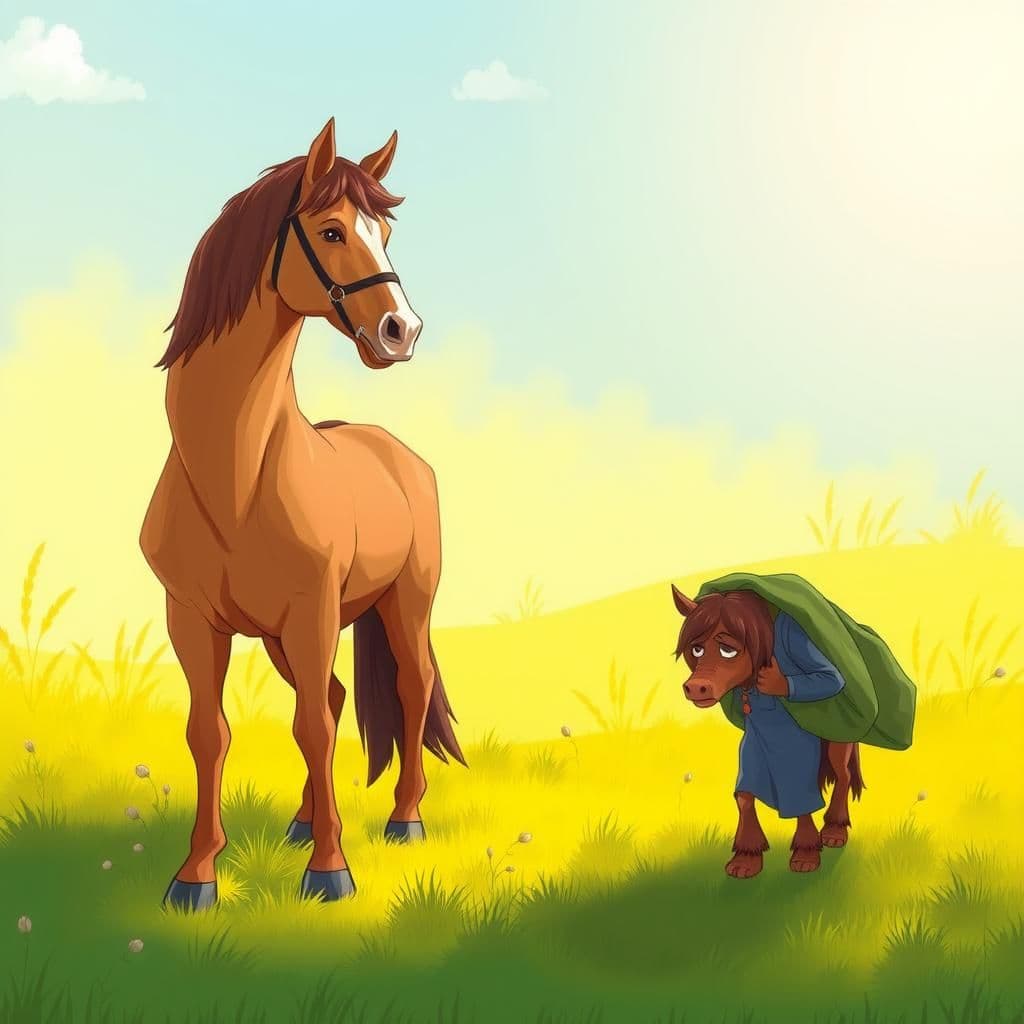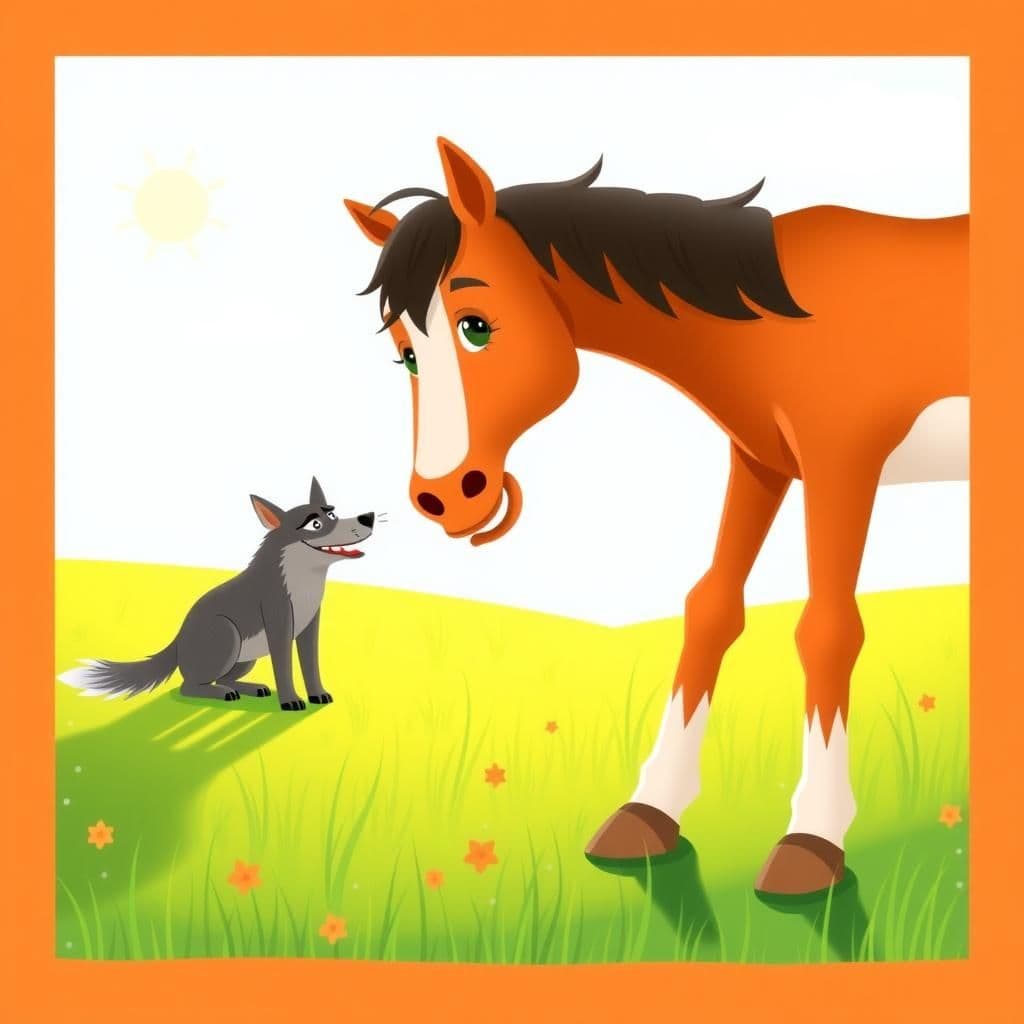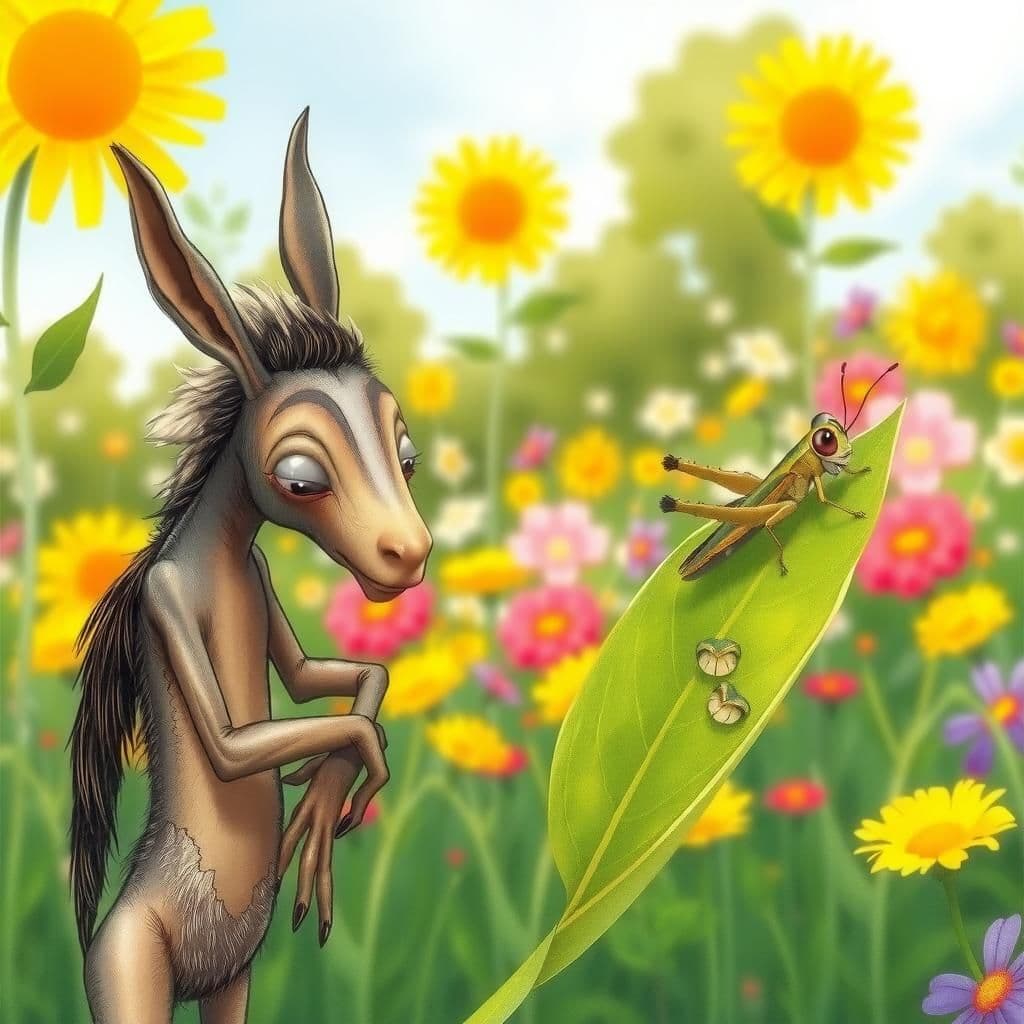The Horse and the Ass

Story Summary
In the humorous story "The Horse and the Ass," a rude horse ignores his overloaded companion's pleas for help, only to find himself burdened with the entire load when the ass collapses. This motivational tale serves as an inspirational short story with a moral, highlighting the importance of sharing each other's struggles, lest we face the consequences alone. Ultimately, it reminds us that in the top 10 moral stories, the lesson is clear: neglecting the troubles of others can lead to our own downfall.
Click to reveal the moral of the story
The moral of the story is that we should share the burdens of others, as neglecting their struggles can ultimately lead to greater consequences for ourselves.
Historical Context
"The Horse and the Ass" is a fable attributed to Aesop, a storyteller from ancient Greece whose works date back to around the 6th century BCE. This tale is part of a broader tradition of moral stories that convey ethical lessons through animal characters, often highlighting themes of empathy and the consequences of selfishness. Similar narratives can be found in various cultures, including the Panchatantra of India, which also emphasizes the importance of compassion and shared burdens in human relationships.
Our Editors Opinion
This fable underscores the importance of empathy and communal support in modern life, illustrating how neglecting the burdens of others can ultimately lead to greater personal consequences. For instance, in a workplace setting, a team member who refuses to help a struggling colleague may find themselves overwhelmed when that colleague's performance falters, resulting in increased pressure and responsibilities for everyone involved.
You May Also Like

The Farmer and the Snake
In "The Farmer and the Snake," a classic moral story, a farmer's act of kindness in rescuing a frozen snake leads to his mortal injury when the snake bites him after being revived. This thought-provoking tale illustrates that not all creatures deserve compassion, highlighting a powerful lesson found in many childhood stories with moral undertones: the greatest kindness can sometimes be met with ungratefulness. Ultimately, the farmer's fate serves as a reminder that compassion directed towards the undeserving can lead to harm.

The Wolf and the Horse
In "The Wolf and the Horse," a cunning Wolf attempts to deceive a Horse by claiming to have left a field of untouched oats for him. However, the Horse sees through the ruse, pointing out that if oats were suitable for the Wolf, he would have eaten them himself. This famous fable illustrates a powerful moral about how individuals with a bad reputation often struggle to be trusted, even when they try to perform good deeds, highlighting the impact of storytelling with morals in our understanding of character and trust.

The Ass and the Grasshopper
In the well-known moral story "The Ass and the Grasshopper," an ass becomes enchanted by the beautiful singing of grasshoppers and, in his desire to emulate them, decides to live solely on dew, believing it to be the secret to their melody. This foolish choice leads to his tragic death from starvation, illustrating that attempting to imitate others without understanding their needs can have dire consequences. This simple moral story serves as a cautionary tale for students about the dangers of envy and blind imitation.
Other names for this story
"The Burden of Friendship, The Weight of Ignorance, A Lesson in Sharing, The Cost of Pride, The Tale of Two Beasts, The Load We Share, A Horse's Mistake, Compassion in the Journey"
Did You Know?
This fable highlights the importance of compassion and shared responsibility; the horse's initial refusal to assist the ass ultimately leads to his own burden increasing and a tragic outcome, illustrating how neglecting the struggles of others can result in one's own downfall.
Subscribe to Daily Stories
Get a new moral story in your inbox every day.